Search
Search Results
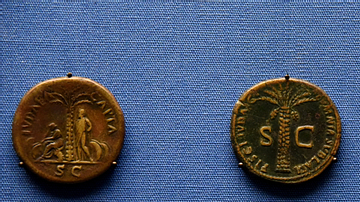
Image
Roman Coins Referring to Judaea, Minted at Rome
Emperor Vespasian (r. 69-79 CE) issued a large series of coins commemorating the defeat of the First Jewish Revolt (66-70 CE), and Nerva (r. 96-98 CE) made coins to mark the end of abuses in the collection of the tax which Jewish were obliged...
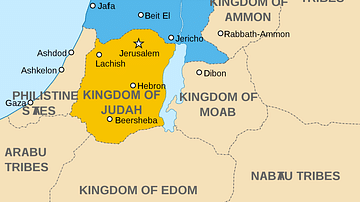
Image
Map of the Levant circa 830 BCE
A map of Palestine circa 830 BC, showing the kingdoms of Israel and Judah, as well as the surrounding kingdoms and tribes.
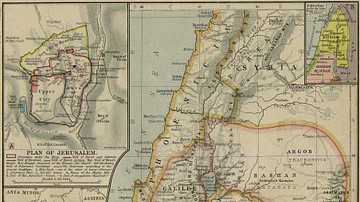
Image
Ancient Palestine
Insets: Plan of Jerusalem. Dominions of David and Solomon (1025-953 BC). Palestine under the later Kings (953-722 BC). Palestine under Joshua and the Judges (1250-1125 BC).
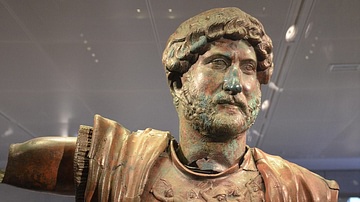
Image
Bronze statue of Hadrian
Bronze statue of Hadrian, found at the Camp of the Sixth Roman Legion in Tel Shalem (Israel). It was found by chance by an American tourist in 1975 while searching for ancient coins with a metal detector. Tel Shalem was once occupied by a...
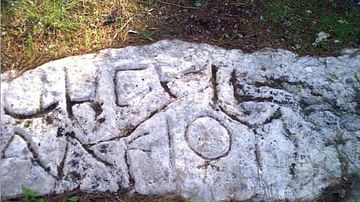
Image
Gezer Boundary Stone
One of the boundary stones from the site of Tel Gezer in modern-day Israel. These stones are believed to have been installed at the site in the Roman-period.
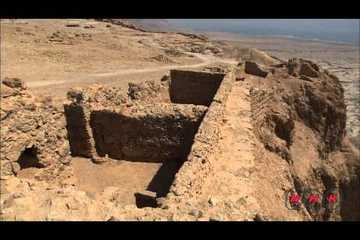
Video
Masada (UNESCO/NHK)
Masada in present-day Israel is a rugged natural fortress, of majestic beauty, in the Judaean Desert overlooking the Dead Sea. It is a symbol of the ancient kingdom of Israel, its violent destruction and the last stand of Jewish patriots...
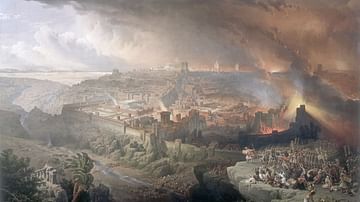
Article
The Great Jewish Revolt of 66 CE
The Roman Empire in the early 1st century CE was often regarded as the perfect empire. The outstanding military prowess of the Romans was used to expand the empire, and once the territories were acceptably pacified, Roman political power...
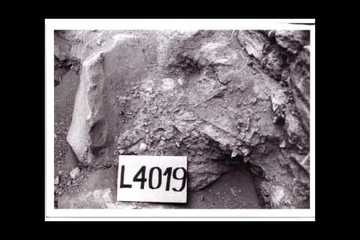
Video
Armour in Roman Judaea
Dr Guy Stiebel speaks about armour Roman Judaea at the Greek and Roman Armour Study Day, on 20th July, 2015.

Article
The Siege of Jerusalem in 70 CE
The Siege of Jerusalem in 70 CE was the high watermark in the First Jewish-Roman War (66-73 CE) regarding the tension between the two forces. With the Roman Empire transitioning from the Julio-Claudian emperors to the Flavian dynasty in the...
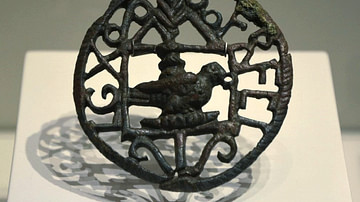
Article
Legions of Judea
Judea was initially dependent on its neighbor Syria for military support until it received a Roman legion of its own in 70 CE after the Great Jewish Revolt of 66 CE. Legio X Fretensis was stationed at remains of the burned city of Jerusalem...